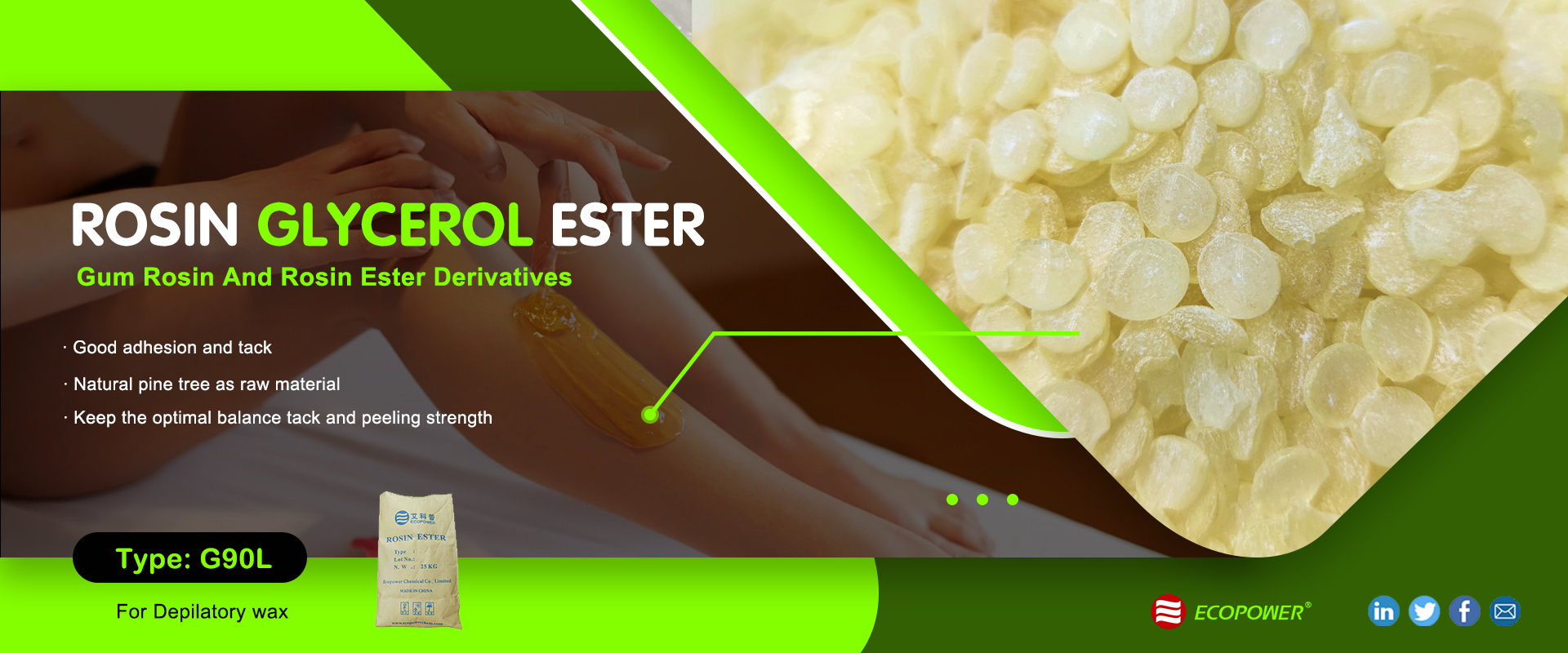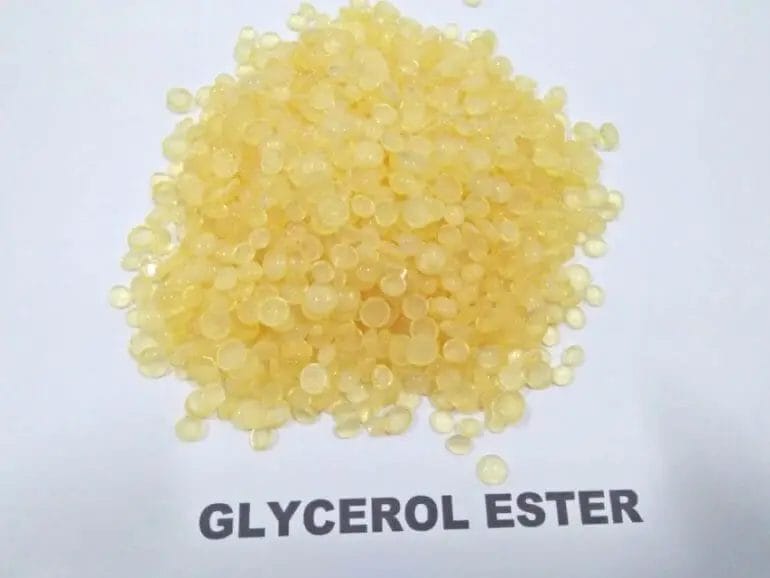Glycerol ester of wood rosin, commonly known as wood rosin, is commonly used as a food additive in various products. While there is some concern about its potential health effects, extensive research has indicated that it is generally safe for consumption. However, individuals with specific allergies or sensitivities should exercise caution. It is always recommended to consult with a healthcare professional for personalized advice regarding any dietary concerns.

Side Effects of Glycerol Ester of Wood Rosin Consumption
Glycerol Ester of Wood Rosin (GEWR) is a food additive commonly used in the production of certain beverages and processed foods. While considered safe for consumption in small amounts, excessive intake of GEWR can have certain side effects that individuals should be aware of. In this section, we will explore the potential side effects of consuming GEWR.

1. Digestive Issues
One of the most commonly reported side effects of consuming GEWR is digestive issues. This can include symptoms such as bloating, gas, abdominal discomfort, and diarrhea. These side effects may be more pronounced in individuals who are sensitive to additives or have pre-existing digestive conditions.
2. Allergic Reactions
Some individuals may experience allergic reactions to GEWR, especially if they have a known allergy to pine resin or related substances. Symptoms of an allergic reaction may include hives, itching, swelling, difficulty breathing, and in severe cases, anaphylaxis. If you experience any signs of an allergic reaction after consuming products containing GEWR, it is important to seek medical attention immediately.
3. Skin Irritation
In certain cases, direct contact with GEWR can cause skin irritation. This can manifest as redness, itching, or a rash. Individuals who are particularly sensitive to additives or have a history of skin allergies may be more prone to experiencing skin irritation from GEWR.
4. Potential Hormonal Effects
There have been some concerns raised about the potential hormonal effects of consuming GEWR, particularly in relation to estrogen levels. While more research is needed to fully understand these effects, individuals with hormonal imbalances or those undergoing hormone therapy should exercise caution when consuming products containing GEWR.
5. Interference with Medications
It is important to note that GEWR can potentially interfere with the absorption and effectiveness of certain medications. If you are taking any medications, it is advisable to consult with your healthcare provider before consuming products that contain GEWR to ensure there are no potential interactions.
6. Weight Gain
While not a direct side effect of GEWR consumption, some individuals have reported weight gain as a result of consuming products that contain this food additive. This may be due to the increased caloric intake or other factors related to the foods and beverages in which GEWR is commonly found. It is important to maintain a balanced diet and monitor overall calorie intake to avoid excessive weight gain.
In summary, while Glycerol Ester of Wood Rosin is generally considered safe for consumption, it can have certain side effects in some individuals. These can include digestive issues, allergic reactions, skin irritation, potential hormonal effects, interference with medications, and weight gain. It is essential to be aware of these potential side effects and consult a healthcare professional if any concerns arise.

Safety Concerns and Controversies Surrounding Glycerol Ester of Wood Rosin
The use of food additives is a common practice in the food industry to enhance the taste, appearance, and texture of food products. One such additive is the glycerol ester of wood rosin, which is derived from pine tree resin. While it has been approved for use by regulatory authorities, there are safety concerns and controversies surrounding its usage.
Potential Health Risks
One of the main concerns regarding the glycerol ester of wood rosin is its potential impact on health. Some studies have raised concerns about its effects on the liver and kidneys. These studies suggest that high doses of this additive may lead to liver damage and impaired kidney function. However, it is important to note that these studies were conducted on animals, and further research is needed to determine the exact impact on humans.
Additionally, there have been reports of allergic reactions and sensitivities to the glycerol ester of wood rosin. Individuals with known allergies to pine trees or resin may be at a higher risk of experiencing adverse reactions when consuming products that contain this additive. It is crucial for individuals with allergies to carefully read food labels and avoid products that contain the glycerol ester of wood rosin.
Controversies and Labeling
The use of the glycerol ester of wood rosin has also sparked controversies regarding its labeling and transparency. Some critics argue that the labeling of food products containing this additive is unclear, making it difficult for consumers to make informed choices. They argue that clearer and more explicit labeling should be implemented to ensure that consumers are aware of the presence of this additive in their food.
Furthermore, there is ongoing debate about the necessity of using the glycerol ester of wood rosin in food products. Critics question whether the benefits of using this additive outweigh the potential risks. They advocate for stricter regulations and more comprehensive safety evaluations to ensure the overall well-being of consumers.
Regulatory Oversight
The glycerol ester of wood rosin has been approved for use as a food additive by regulatory authorities such as the U.S. Food and Drug Administration (FDA) and the European Food Safety Authority (EFSA). These regulatory bodies have evaluated the available scientific data and concluded that when used within approved limits, the additive is safe for consumption by the general population.
However, it is important to note that regulatory approvals are based on the available evidence at the time of evaluation and may be subject to reassessment as new research emerges. It is crucial for regulatory bodies to stay updated on the latest scientific findings and make adjustments to their regulations as necessary to ensure consumer safety.
In Summary
The glycerol ester of wood rosin is a food additive that has safety concerns and controversies surrounding its usage. Potential health risks include liver and kidney damage, as well as allergic reactions in individuals with known sensitivities. Critics argue for clearer labeling and stricter regulations. Regulatory authorities have approved the use of this additive but may reassess its safety based on new research. It is important for consumers to stay informed and make educated choices regarding the consumption of products containing the glycerol ester of wood rosin.

Regulatory Standards and Guidelines for Glycerol Ester of Wood Rosin in Food Products
Glycerol Ester of Wood Rosin (GEWR) is a food additive commonly used in various food and beverage products. It is derived from wood resin and is used as a stabilizer, emulsifier, and thickening agent. However, the use of GEWR in food products is regulated by various authorities to ensure its safety for consumption. In this section, we will discuss the regulatory standards and guidelines for GEWR in food products.
1. United States Food and Drug Administration (FDA)
The FDA is responsible for regulating the use of food additives in the United States. In the case of GEWR, it is listed as a safe substance for consumption by the FDA. However, there are specific regulations and guidelines that food manufacturers must adhere to when using GEWR in their products.
The FDA has set a maximum limit for GEWR in specific food products to ensure its safe use. For example, the maximum allowable level of GEWR in chewing gum is 4%. This limit ensures that consumers are not exposed to excessive amounts of GEWR, which could potentially be harmful.
In addition to the maximum limit, the FDA also requires that food manufacturers label their products accurately if they contain GEWR. This enables consumers to make informed choices about the products they purchase and consume.
2. European Food Safety Authority (EFSA)
In Europe, the use of GEWR in food products is regulated by the European Food Safety Authority (EFSA). The EFSA evaluates the safety of food additives and establishes guidelines for their use.
According to the EFSA, GEWR is considered safe for consumption at the levels currently used in food products. However, the EFSA also sets a maximum limit for the use of GEWR in certain food categories to ensure its safe use.
Furthermore, the EFSA requires that all food products containing GEWR be labeled appropriately to inform consumers about its presence. This labeling requirement allows individuals with specific dietary restrictions or allergies to avoid consuming products that contain GEWR.
3. Codex Alimentarius
The Codex Alimentarius is an international food standards organization that develops guidelines and standards for food products. It also provides a framework for the harmonization of food regulations among different countries.
Under the Codex Alimentarius, GEWR is listed as an approved food additive. However, its use is subject to specific conditions and restrictions to ensure its safety. The Codex Alimentarius sets maximum limits for the use of GEWR in various food categories, similar to the regulations set by the FDA and the EFSA.
Food manufacturers that wish to use GEWR in their products must comply with the standards and guidelines set by the Codex Alimentarius, as adopted by their respective countries.
4. National Regulations
It is important to note that regulatory standards for GEWR may vary from country to country. While some countries may adopt the standards set by the FDA, EFSA, and Codex Alimentarius, others may have their own regulations in place.
Food manufacturers must be aware of the specific regulations in their respective countries and ensure compliance with the applicable standards and guidelines.
Summary
Glycerol Ester of Wood Rosin (GEWR) is regulated by various authorities to ensure its safe use in food products. The FDA, EFSA, and Codex Alimentarius have established maximum limits for GEWR in specific food categories, and food manufacturers must adhere to these limits. Proper labeling of products containing GEWR is also required to inform consumers. Additionally, national regulations may exist, and food manufacturers should comply with the specific regulations of their respective countries. By adhering to these regulatory standards and guidelines, the use of GEWR in food products can be done in a safe and responsible manner.
Alternatives to Glycerol Ester of Wood Rosin: Healthier Options for Food Additives
Food additives play a significant role in enhancing the taste, texture, and shelf life of processed foods. However, the health concerns associated with certain additives have led to a growing demand for safer alternatives. One such additive, glycerol ester of wood rosin (GEWR), has been a topic of debate due to its potential adverse effects on health. In this section, we will explore some healthier options that can be used as alternatives to GEWR in food production.
1. Agar-Agar
Agar-agar, derived from seaweed, is an excellent alternative to GEWR. It is a natural gelling agent that provides similar functionality to GEWR without the associated health risks. Agar-agar is widely used in the food industry and is known for its excellent stability and texture-enhancing properties.
2. Pectin
Pectin, a soluble fiber found in various fruits, is another viable alternative to GEWR. It is commonly used as a gelling agent, especially in jams, jellies, and fruit preserves. Pectin not only provides the desired texture but also offers additional health benefits, including improved digestion and blood sugar control.
3. Guar Gum
Guar gum, extracted from the seeds of the guar plant, is a versatile food additive that can replace GEWR in many applications. It acts as a thickening agent and stabilizer, giving products a desirable consistency. Guar gum is also known for its high fiber content and has been linked to various health benefits, such as improved gut health and cholesterol management.
4. Xanthan Gum
Xanthan gum is a natural polysaccharide produced through fermentation. It is commonly used as a stabilizer and thickening agent in a wide range of food products. As an alternative to GEWR, xanthan gum provides similar functionality and has been deemed safe for consumption by regulatory authorities.
5. Carrageenan
Carrageenan, derived from red seaweed, is a popular food additive used for its thickening and stabilizing properties. It is a natural alternative to GEWR and is commonly found in dairy products, desserts, and plant-based alternatives. Carrageenan has been extensively studied and considered safe for consumption in moderate amounts.
6. Cellulose Gum
Cellulose gum, also known as carboxymethyl cellulose (CMC), is a plant-derived food additive widely used as a thickening agent and stabilizer. It can be used as an alternative to GEWR without compromising texture or functionality. Cellulose gum is considered safe for consumption and has been approved by regulatory bodies.
7. Locust Bean Gum
Locust bean gum, derived from the seeds of the carob tree, is a natural food additive that can replace GEWR in various applications. It acts as a thickening agent and stabilizer and provides similar functionality to GEWR. Locust bean gum is considered safe for consumption and has been used in the food industry for many years.
8. Gum Arabic
Gum arabic, also known as acacia gum, is a natural resin obtained from the Acacia tree. It is widely used as an emulsifier, stabilizer, and thickening agent. Gum arabic can be used as an alternative to GEWR in various food applications, providing similar functionality and without posing any significant health risks.
In summary, there are several healthier alternatives to glycerol ester of wood rosin (GEWR) that can be used as food additives. These alternatives, such as agar-agar, pectin, guar gum, xanthan gum, carrageenan, cellulose gum, locust bean gum, and gum arabic, offer similar functionality without the potential health concerns associated with GEWR. By utilizing these safer alternatives, food manufacturers can cater to the growing demand for healthier and safer food options.
FAQs
Is glycerol ester of wood rosin bad for you?
Glycerol ester of wood rosin, also known as E445, is considered safe for consumption by regulatory authorities. It is commonly used as a food additive to stabilize emulsions and improve texture in certain products. However, individuals with specific allergies or sensitivities should consult with a healthcare professional before consuming products containing this ingredient.
What is glycerol ester of wood rosin?
Glycerol ester of wood rosin is a food additive derived from wood rosin, a natural resin obtained from pine trees. It is commonly used to provide stability and improve the texture of certain food and beverage products. It is often found in citrus-flavored beverages and chewing gum.
Can glycerol ester of wood rosin cause any side effects?
Glycerol ester of wood rosin is generally considered safe for consumption. However, excessive intake of this food additive may cause digestive discomfort or allergic reactions in sensitive individuals. It is always recommended to consume food additives in moderation and consult with a healthcare professional if you have any concerns.
Conclusion
In conclusion, the safety of glycerol ester of wood rosin (GEWR) is a topic of concern for many individuals. While there is limited research on the specific health effects of GEWR, the available evidence suggests that it is generally safe for consumption in small amounts.
However, like with any food additive, moderation is key. It is always recommended to read ingredient labels and be aware of the quantities of GEWR in the products you consume. As with any dietary choice, it is important to maintain a balanced and varied diet.
In summary, while more research is needed to fully understand the long-term effects of GEWR, current evidence indicates that it can be safely consumed in moderation as part of a healthy lifestyle.